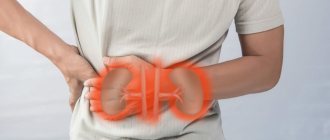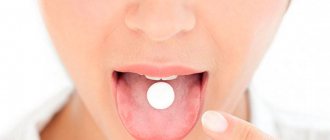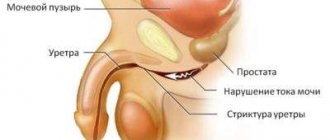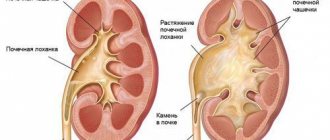Kidneys are one of the most important life-support organs of the human body. If any changes occur in the functionality of the kidneys, this affects the functioning of the entire human body.
How do the kidneys hurt, what symptoms are characteristic of this, how to treat them? This will be discussed further. So, the symptoms of kidney disease are divided into two groups: general and local.
Common signs of kidney disease
There are common symptoms that are common to all kidney diseases. To identify them in a timely manner, you will need to find out what these symptoms are. So this is:
- feeling of pain or burning when urinating;
- electrolyte imbalance - swelling of the face, eyes, ankles;
- presence of blood in the urine;
- inability to control urination;
- frequent urge to urinate.
Kidney cyst
The cyst can reach impressive sizes and is often a serious obstacle to the normal functioning of the kidneys. To avoid surgery, conservative treatment is prescribed. Traditional medicine can also help get rid of kidney cysts, but only proven recipes should be used.
Burdock against cysts
You can simply squeeze the juice out of the plant and take 2 tablespoons of it before meals, or you can make a paste. To do this, you need to grind the leaves of the plant and put them in a jar. Store the container in the refrigerator and take a teaspoon twice a day. The course of treatment with burdock lasts a month. If the cyst does not shrink, treatment is repeated after a break of four weeks.
Celandine juice
Despite its toxicity, an extract from this plant is used to treat cystic formations. The tincture from the leaves begins to be taken in small doses, gradually increasing them. To neutralize the possible negative effects of celandine, it is recommended to consume more dairy products along with it. After treatment of a kidney cyst with traditional methods, it is necessary to undergo examination again, and monitor the dynamics during therapy.
How to treat kidney stones?
Urolithiasis occurs for many reasons - from a large accumulation of calcium salts in the urine, from excess salt consumed by a person in food, from excessive secretion of fluid through the skin.
Many people are not even aware that they have kidney stones. This disease manifests itself in the form of acute colic in the kidney area. This is explained by the fact that the stone gets stuck in the urinary canal, putting pressure on its walls, thereby causing quite severe pain. Traditional medicine recipes will help you learn how to treat kidney stones. Here are some of them:
Causes of kidney diseases
When we talk about kidney diseases, we mean a fairly large group of pathologies, the development of which gradually damages the kidney tissue. The causes of such diseases can be a variety of influences. A number of diseases develop as a result of the impact of infection on the human body, and this can be either bacterial or viral infection. Impaired urine flow negatively affects kidney function. Formations such as tumors and cysts can provoke impaired kidney function. In addition, the causes of kidney disease can be metabolic disorders, autoimmune damage to the body, congenital developmental anomalies, and a decrease in the functional activity of the parenchyma. The normal functioning of the kidneys is also affected by the stones that sometimes form in them.
Preventing the formation of kidney stones
Taking regular preventive measures to combat diseases of the genitourinary system is undoubtedly easier than figuring out how to treat kidneys at home and suffering from pain every day.
Therefore, if you are predisposed to the occurrence of such diseases, you should follow simple rules: - increase the amount of clean water you drink without gas (at least 2–2.5 liters per day);
- systematically drink decoctions and infusions of rosehip, common plantain and stinging nettle, which will help maintain urine output at the proper level;
- do not eat over-salted food. Reduce the consumption of spinach, tomatoes and foods containing purine;
- take sitz baths with horsetail decoction.
How and with what to treat kidneys at home
Among the signs indicating possible kidney problems are the following:
- swelling and circles under the eyes;
- feeling of thirst and decreased appetite;
- high pressure;
- feeling of nagging pain in the lower back;
- elevated temperature;
- drowsiness.
Can kidney treatment be carried out at home using folk remedies? The answer is yes only if the disease is known. Medicinal herbs for the kidneys are used for different purposes:
- You can cleanse the kidneys using lemon balm, oregano, black elderberry, and knotweed.
- Parsley, stinging nettle, juniper, knotweed, peppermint, and horsetail can remove small stones or sand from the kidneys.
Herbs
Herbal medicine for the kidneys can be represented by various useful preparations. First in line are diuretics. An example of such a product could be prepared according to the following instructions:
- Combine 5 tbsp. l. peppermint, nettle and lingonberry leaves, corn silk.
- Place only 1 tbsp in the container. l. collection, pour 1 cup of water into it, only taken at room temperature.
- After 6 hours of infusion, warm up the product for about a quarter of an hour.
- Use 1 glass of the prepared broth throughout the day.
Treatment of kidneys at home with folk remedies can also be based on other herbal preparations:
- With stones. Prepare 4 tbsp. l. the following medicinal herbs: immortelle flowers, rhubarb root and yarrow. Then 1 tbsp. l. Steam this mixture with a glass of boiling water, then leave to cool and strain. Use 2 glasses of the product per day. Contraindications include pregnancy and glomerulonephritis.
- From acute nephritis. Prepare 4 tbsp. l. St. John's wort and bearberry leaves, 3 tbsp each. horsetail and birch leaves, 2 tbsp. pharmaceutical chamomile, oregano, hernia and corn silk. Take a mixture of all herbs in the amount of 1 tbsp. l., pour 2 glasses of water into it. Leave the product overnight and boil for about 7-10 minutes in the morning. Take 1 glass of infusion on an empty stomach, spread the remaining remedy throughout the day.
- Black Prince Cake: Recipes
- How to make homemade wine
- How to dye the ends of your hair at home
Millet and oats
To treat kidneys at home, oats or millet are used as a folk remedy. The first has proven itself due to its bile and diuretic properties. This plays an important role in kidney recovery. You can prepare a folk remedy according to the following recipe:
- Prepare 2 tbsp. oats and 4 tbsp. water.
- Combine the ingredients.
- Then evaporate a quarter of the liquid.
- Use the finished product in 0.1 liters.
Recipes with oats are not recommended for people with heart failure, and with millet - for people with colon diseases, gastritis, and pancreatic problems. The basic folk recipe using the second cereal looks like this:
- Pour a glass of washed millet into 3 liters of boiling water.
- After infusing for a day under a towel or blanket, you will see a white precipitate - this is the medicine.
- Take in any quantity, but do not rush to throw away the remaining millet, but brew it again.
Diet
An equally effective way to treat kidney disease at home is to follow a diet. Problems with these organs are characterized by swelling, high blood pressure and general intoxication. To eliminate these symptoms, the diet should have the following principles:
- reducing the amount of protein food;
- increase in calorie content to 3500 kcal;
- limiting the amount of salt consumed;
- introduction of fasting days;
- refusal of foods such as spices, chocolate, mushrooms, meat broths, legumes;
- inclusion in the diet of vegetable soups, pasta, berries, jelly, fermented milk products, vegetable oils, cereals, fruits and compotes.
| Eating | Menu |
| Breakfast | Rice milk porridge, tea, cheese with raisins |
| Snack | Curd pudding |
| Dinner | Vegetable puree soup, meat, tea |
| Afternoon snack | A glass of curdled milk |
| Dinner | Meat casserole, tea |
Nephroptosis (prolapse) of the kidneys
The kidneys are a fairly mobile organ that can move in different directions. The permissible rate of displacement is no more than 1–2 cm. Prolapse is considered abnormal if the kidney has shifted downwards by more than two vertebrae when a person moves. This symptom is often found in pregnant women.
Information on how to treat kidneys in this case can be gleaned from traditional medicine recipes:
- Prepare a decoction of knotweed herb, which should be taken 3 times daily 40 minutes before meals. A single dose is 100 g.
- Pour 20–30 g of finely chopped broom kochia into a thermos, pour 300 g of boiling water over the herb and leave for 12 hours. Consume 40–50 g between meals.
- We will describe how to treat kidneys through simple physical exercise. You should lie on your back on a hard surface. It is advisable to place your legs as wide as possible. First bend your left leg, then your right leg at the knee, trying to touch the floor surface with it. When performing this exercise, do not rush, otherwise you may experience sharp pain in the lumbar region. It is necessary to gradually get used to such a load. The exercise should be done daily 2-3 hours after dinner.
- Sprinkle a small handful of flax seeds with clean water, then sprinkle with 1 teaspoon of powdered sugar, and fry in a frying pan without oil. Chew the resulting mass throughout the day.
Medicine in the kitchen
This is not a joke; indeed, in almost any kitchen you can find the following ingredients:
- soda;
- millet;
- oatmeal;
- rice.
It’s worth taking a closer look at how to treat your kidneys with these affordable home remedies.
Soda
The product for obtaining fluffy yeast-free baked goods has the following medicinal properties:
- stabilizes blood pressure;
- eliminates swelling;
- prevents the development of inflammatory processes (creates an alkaline environment in the body that is harmful to bacteria and viruses).
The daily therapeutic dose is a teaspoon; it can be consumed by diluting it in milk or water.
The main condition for the effectiveness of treatment: soda must be taken on an empty stomach and after that not eaten for 2-3 hours.
Millet
Millet cereal helps remove toxins from the body.
To cleanse the kidneys, it can be eaten in the form of porridge or added to soups. And for those who want to carry out treatment with cereals, we can recommend preparing millet water.
To do this you need:
- pour a glass of washed millet into a 3-liter jar;
- fill the container with water at room temperature;
- insist for a day.
You can drink the resulting liquid without restrictions.
Oatmeal
Oats have a pronounced diuretic effect and are indispensable if kidney pathologies are accompanied by the appearance of swelling.
Recipe for making a medicinal decoction:
- pour a glass of oats with 4 glasses of water;
- put the pan on the fire;
- cook, stirring continuously, until about a quarter of the liquid has evaporated.
You need to drink the resulting product a quarter glass before eating.
Treatment with oatmeal broth is contraindicated in heart failure.
Rice
Porridges and soups with rice are a good way to cleanse not only the kidneys, but also the entire body. For medicinal purposes, you should eat dishes prepared from this grain every day, but you can also use another method of consumption:
- rinse half a glass of rice;
- pour boiling water (the volume of water should be 2-3 times more than the cereal);
- cover and leave overnight.
The resulting porridge should be eaten in the morning for breakfast. To improve the taste, you can add a little honey or sugar. The method of preparation without cooking allows you to preserve the maximum nutrients of the product.
Rice treatment should be used with caution if you are prone to constipation.
There are many ways to treat kidneys with non-traditional remedies, but when choosing a treatment method, you need to be careful - improper use of home remedies can harm the body. It is recommended to consult with your doctor before starting therapy with traditional methods.
Prevention of nephroptosis
Let's take a closer look at the basic recommendations on how to prevent the occurrence of this disease, because taking preventive measures is much easier and safer than figuring out how to treat kidney prolapse. So, you need:
- monitor your posture, avoiding spinal deformation and various disorders;
- exclude large power loads, especially if a person has an asthenic physique;
— sudden significant weight loss or exhaustion of the body should not be allowed.
Diet
Kidney diseases are accompanied by the appearance of edema. The pressure in the arteries increases, the body experiences increased stress, and intoxication develops. Toxic substances are not excreted, but accumulated by the body.
To reduce symptoms, make work easier, and also cleanse the kidneys, it is important
- reduce the amount of salt consumed;
- reduce the intake of protein in the body;
- arrange fasting days;
- increase the number of calories per day to 3000-3500 kcal.
You will have to give up some foods that cause diseases and impede kidney function:
- spices;
- chocolate and cocoa;
- mushrooms;
- legumes;
- fatty broths.
Treatment for any disease of the kidneys and the entire excretory system is impossible without diet. The diet includes more fresh vegetables and fruits, fermented milk products, cereals, and it is advisable to cook in vegetable oil. Preference is given to steamed or boiled dishes. It is important to adjust the frequency of meals, eat small portions 5-6 times a day.
A sample menu for a day looks like this:
- breakfast - oatmeal with raspberries or strawberries, rosehip decoction;
- 2nd breakfast - curd pudding;
- lunch - vegetable broth with millet, steamed chicken cutlets, pumpkin puree;
- afternoon snack - boiled fish, herbal tea;
- dinner - buckwheat porridge with vegetable salad, liver soufflé, fruit compote.
If you feel hungry, you are allowed to snack on fruit. Prevention is also necessary after recovery to prevent relapse.
Kidney pyelonephritis
This disease is a microbial inflammatory process of the kidneys, as well as the renal pelvis.
The occurrence of pyelonephritis is caused by the entry of bacteria that are present in the intestinal microflora into the urinary canal. The most commonly listed bacteria are Escherichia coli. You should immediately respond to kidney pain. How to treat them can be learned from traditional medicine. Namely:
- Take finely ground elecampane root and mix it with a small amount of honey. Use only on an empty stomach in the morning and before bed, 1 teaspoon.
- Bring 1 liter of cow's milk (if the body does not absorb milk, you can use plain water) to a boil, then add 200 g of oatmeal into it. Leave until completely cool. Take 3 times a day, 50 g.
Kidney pathologies
There are many kidney pathologies, however, the most commonly observed are:
- Urolithiasis - despite the high ability to cleanse, stones and sand accumulate in the kidneys, which goes unnoticed until a certain point. Then pain begins to indicate their presence. The development of pathology can be caused by an unsuitable climate, water hardness, or “wrong” food. A sedentary lifestyle and eating dry food contributes to the formation of stones.
- Pyelonephritis is an infectious disease caused by microorganisms that enter the kidneys through the bloodstream from any source of inflammation. The disease progresses into a chronic phase and can worsen for various reasons - overwork, hypothermia, low immunity.
- Hydronephrosis is a pathology with expansion of the pyelocaliceal system. The organ cannot cope with cleansing, and progressive deterioration is observed.
- Kidney failure - with this disease, the organ ceases to cope with cleansing, partially or completely. The result of lack of cleaning is the accumulation of uric acid and urea, disturbed water-electrolyte balance. Toxic substances and pharmaceuticals cause pathology. The chronic form is the result of a number of diseases.
- Nephroptosis is also called “wandering” kidneys. When prolapsed, the kidneys rotate around their axis and deform the vessels, which impairs blood circulation. The cause of the disease is increased physical activity, injury and sudden weight loss.
Prevention of pyelonephritis
To prevent searching for information on how to treat kidney pyelonephritis, it is necessary to systematically carry out preventive measures, following the following recommendations:
— conduct therapeutic exercises several times a week, aimed at general strengthening of the body;
- take decoctions and infusions of herbs that have a diuretic and anti-inflammatory effect;
- do not ignore your diet - reduce the consumption of salty, spicy foods, as well as foods such as radishes, spinach, coffee.
What to do if you have pain
Kidney pain can be relieved with a warm bath. To do this, you need to fill a bathtub with not very hot water, pour in a few crystals of potassium permanganate, dissolving them well and stirring the water, or instead you can throw in Chernobyl herb, sit in the bath and sit for about 30 minutes until the pain subsides. It is very important that the hot water does not rise above the heart area and does not provoke a rapid heartbeat.
Treatment of kidney diseases primarily requires only positive emotions. Whatever drug the doctor prescribes, against the background of a bad mood or nervous stress, nothing will bring any benefit and there will be no improvement. Unfortunately, you can get sick quickly; catching a cold and the flu is enough for your kidneys to stop functioning properly. But the treatment will take quite a long time.
First of all, the doctor prescribes a salt-free diet, allowing only everything baked in the oven or boiled. Under no circumstances should you eat fried, smoked, spicy, or salty foods. Alcoholic drinks and cigarettes are strictly prohibited.
The patient is contraindicated from hypothermia, being in a damp room, or experiencing stress.
If inflammatory processes are diagnosed in the kidneys, then it is important to take antibiotics so that purulent processes do not begin: pyelonephritis, glomerulonephritis.
Antiviral and antifungal drug therapy is prescribed in combination with anti-inflammatory drugs and antispasmodics to relieve pain. Be sure to prescribe the necessary vitamins and minerals.
If there are stones in the kidneys, then in addition to tablets, a procedure for crushing stones may be prescribed, depending on the nature of the formations:
- From calcium salts;
- Phosphate;
- Urate;
- Amino acids.
For example, phosphate ones are the most unpleasant, because they grow fastest in the kidneys and become a strong cast of the renal pelvis, similar to corals. They do not cause severe pain to the patient, but they cannot easily jump out through the ureter.
The formation of any stones is provoked by infections and a sedentary lifestyle. The urologist or nephrologist decides which method to choose to get rid of stones (medical or surgical).
When treating kidney stones, the doctor always advises doing physical therapy, because special exercises help remove stones from the body. But it is necessary to start with an examination in order to understand exactly what the diagnosis is, what type of stones have formed in the kidneys, what size they are, because if they are too large, if they move from their place, they can block the ureter, and then stagnation of urine will begin, which can lead to the death of the patient.
After relieving acute pain and undergoing a course of treatment, patients suffering from kidney diseases should undergo sanatorium-resort treatment in places with unique mineral waters that help the kidneys.
How to treat cold kidneys?
Your kidneys can get cold not only in winter, when the outside temperature is low, but also in summer, by getting your feet wet in the rain or sitting on a cold stone or concrete staircase, for example. Cold kidneys often lead to unpleasant consequences - various serious kidney diseases.
Cold kidneys are quite diverse pathological conditions called nephritis. They proceed differently, depending on the number and type of bacteria found in the urinary canal, as well as in the kidneys themselves. If your kidneys hurt when you have a cold, you can easily learn how to treat them from traditional healers, who always have many folk recipes in their arsenal.
The best diuretics
Diuretics are used for pathologies of the kidneys and bladder. Failure of the urinary system leads to the accumulation of excess fluid in the body, the formation of sand, edema, increased pressure, and high stress on the heart. Diuretics are also called diuretics. They increase the volume of urine and the rate at which it is eliminated from the body. This reduces the amount of fluid that accumulates in various tissues and areas. Diuretics are divided into 3 types:
- Soft - Diakarb, Veroshpiron;
- Medium - Hypothiazide, diuretic Gigroton;
- Strong - Furosemide, diuretic Trifas, diuretic Uregit.
An excellent diuretic drink is a mixture of cranberries and lingonberries . You need 50 grams. Grind cranberries and lingonberries and pour a glass of boiling water. For taste, add honey and drink 3 times a day.
Nettle decoction is used specifically as a diuretic. To prepare it you need to take 4 tbsp. spoons of nettle, pour 1 liter of boiling water. Soak for 20 minutes in a water bath, cool, strain. You should drink the decoction 0.5 cups 4 times a day.
are a wonderful and tasty homemade diuretic . It fights swelling and removes excess salt from the body.
Symptoms of cold kidneys
This condition is accompanied by acute pain in the lumbar region, at the same time the pain radiates to the leg. There is a sharp increase in temperature (about 40⁰ C), as well as a frequent urge to urinate. There are aches throughout the body, aching pain in the joints, chills, sweating, nausea and general weakness. Symptoms of general intoxication of the body appear.
It is noteworthy that most often these signs appear at night. We will describe in detail several options for how to treat kidneys with folk remedies at home.
Causes of pain (diseases in which the kidneys hurt)
Urolithiasis disease
Urolithiasis manifests itself in the presence of renal colic, in which there is severe acute pain in the abdomen, descending down the ureter into the scrotum (in males) and into the labia (in females), extending sharply to the upper thigh.
This disease occurs in cases where a stone separates from the renal pelvis and clogs the ureter, and injuries appear on the walls of the ureter. Increased contraction of the urinary tract begins to occur.
As a result, there is a disruption in the processes of urine excretion due to the resulting obstacle. Severe irritation of the nerve endings of the ureter and pelvis occurs, which causes such severe pain syndromes.
When renal colic intensifies, a person cannot find relief from unbearable pain, causing a feeling of terrible discomfort and fear. An increase in body temperature, blood pressure, nausea, and in some cases vomiting, and dizziness may also occur.
The normal amount of urine produced is also disrupted and the urge to urinate increases. Urine changes its consistency and color (blood streaks may be observed, and after the end of an attack of renal colic, small grains in the form of sand are released). If you have renal colic, you should not delay visiting a urologist.
Inflammatory processes
Inflammatory processes in the kidneys can begin when various microorganisms enter through the urinary tract or blood.
Inflammation of the kidneys is called pyelonephritis. It can be either unilateral, when one kidney is affected, or bilateral, when two kidneys are inflamed at once. Pyelonephritis is accompanied by the following symptoms:
- feeling of heat, sharply turns into chills;
- increased body fatigue;
- decreased appetite, or complete refusal to eat;
- pain in the area of the affected kidney (or on both sides at once, with bilateral pyelonephritis), which is aching in nature;
- feeling of heaviness.
In cases where the kidneys become inflamed due to urinary tract disease, symptoms such as an increased urge to urinate, which are accompanied by a feeling of pain and severe burning, appear.
- With increased physical activity on the back, as well as when lifting heavy objects, pain may occur on the left side of the lower back, indicating the presence of a disease such as nephroptosis;
- Glomerulonephritis.
This disease is quite common, occurring against the background of other diseases associated with streptococci (sore throat, acute respiratory infections, poisoning). With glomerulonephritis, there is a change in the color of urine to a dark brown hue, as well as high blood pressure and increased swelling of the legs, arms and face.
Inflammation of the kidneys is accompanied by the formation of antibodies, which begin self-destruction processes. In no case should you delay the treatment of this disease; you should definitely see a doctor.
Recipes for treating cold kidneys
1) Every day, preferably at night, you should take baths with a strong decoction of herbs that have anti-inflammatory, antimicrobial and diuretic properties. You should not carry out this procedure for longer than 15–20 minutes, and the water temperature should not exceed 40⁰C.
2) Before going to bed, place a warm heating pad on the lumbar area and keep it there for at least 1 hour. This procedure should be carried out daily until the pain completely disappears.
3) You can also do a procedure such as warming up your feet at night. Pour water into the container, the temperature of which should be approximately 40-45⁰ C. In order to enhance the effect, you can dissolve a small amount of sea salt in the water. Apply the procedure daily.
Having looked at several examples of how to treat cold kidneys, you should not ignore methods of preventing this extremely unpleasant condition.
How to alleviate the condition and prevent attacks of pain
If unexpected attacks of renal colic occur, which cause severe pain, in order to alleviate the patient’s condition, it is necessary to use antispasmodics. To relieve pain, it is best to use Baralgin, Ketorolac, Tempalgin, or No-shpa (if in tablets, you can give the patient several at once).
In addition, in order to relieve an attack of renal colic (if an accurate diagnosis has already been made), you can apply a warm heating pad to the lower back, which will relieve spasm of the ureter and release of stones. Then you need to call an ambulance.
Simple remedies for kidney treatment
Soda is considered an affordable medicine. It is found in every home and is sold inexpensively in stores. According to the results of American scientists, using 1 tsp. baking soda cleanses the kidneys. Not everyone is allowed treatment; the dosage must be selected individually. Soda normalizes blood pressure, removes swelling, fights bacteria and viruses, creating an unfavorable environment for them. It is added to milk or water once a day, after which it is not eaten for about an hour. You must first discuss this and other traditional methods of treating kidneys with a nephrologist.
Herbal teas relieve inflammation by improving the functioning of the body's main filters. Tea is prepared from rose hips, chamomile, dry horsetail and calendula, and other plants. This can be tea from 1 component or a whole collection of medicinal herbs. Popular recipes are:
- mix juniper, rose hips and birch leaves. To 1 part of the collection add 10 parts of water. Boil for 10 minutes, filter. Drink ready-made kidney tea during the day in several doses;
- chop, then mix dried wormwood, horsetail, juniper. For 1 tsp. collection you will need 250 ml of boiling water. Heat in a water bath for 1 hour, strain, drink before meals.
Millet cleanses the body of toxins. Can be used as porridge, prepared according to “grandmother’s” recipe - you will need 1 tbsp. millet, 3 liters of water. Millet is poured into a container, filled with water, and left for a day. In the morning, a sediment will fall to the bottom, which is a medicine. Drain the water and consume the sediment before meals throughout the day in unlimited quantities. Another recipe suggests pouring 0.5 cups of millet into 1 liter of water and boiling for 10 minutes. Cool the product, strain, drink throughout the day.
Oats are famous for their diuretic properties; they drive bile, which is important for pathologies. Oats are contraindicated for those with heart disease. A healing decoction is prepared from oats and water in a ratio of 1:4. You need to cook the mixture until it has evaporated by a quarter. Drink 0.5 cups before meals. Aloe together with honey, oats with rose hips give a good effect. You need to mix 1 kg of oats and 5 liters of water, cook until the solution has evaporated by half. Next add 1 tbsp. rose hips and cook for 5 minutes. Add 1 tbsp to the cooled broth. honey and 50 ml aloe juice. The resulting mixture is consumed with milk after meals.
Rice was another healthy grain. Cleansing porridges and decoctions are prepared from it. It's better to take brown rice. It is poured with boiled water overnight to preserve beneficial microelements in the grains. Eat rice on an empty stomach along with liquid. This type of cleaning is contraindicated for frequent constipation.
Treatment for cysts and tumors in the kidneys
The danger of a cyst is that for a long time it does not show itself as anything, at the same time it disrupts the functioning of the organ. The clinical picture becomes recognizable when the formation grows and puts pressure on neighboring organs. A characteristic sign of the problem will be pain in the side - on the right or left.
The nephrologist will prescribe medications, and in parallel it is advisable to be treated using folk remedies. It is not difficult to prepare decoctions and infusions at home; taking them will speed up recovery, quickly relieve unpleasant symptoms, and prevent serious complications.
The most popular recipes for kidney tumors and cysts:
- parsley. Helps improve organ functionality and relieve pain. The preparation is simple - 300 g of fresh or dry parsley is poured into 1 liter of boiling water and left for 6 hours. The resulting liquid is drunk during the day;
- burdock. It is a popular remedy for ailments including cysts. You can be treated with all parts of this healing plant, but burdock juice gives the best effect. You need to chop and squeeze the leaves, taking 1 tsp of juice twice a day. Course – 30 days;
- Djungarian aconite. This plant is recommended for any neoplasms, during the postoperative period when the tumor was removed. Aconite prevents the spread of metastases throughout the body. For tincture 1 tbsp. dry root, pour 1 liter of vodka, leave for 14 days. Take tincture 1 tbsp. 3 times a day. Those who drive will have to give up driving. The medicine stimulates organ regeneration and restoration of functions;
- For tumors in the kidneys, raspberry kvass is recommended. You need to add 200 g of berries, 200 g of sugar, and add 2 liters of water. To make the liquid ferment faster, add 1 tsp. sour cream. Kvass is infused for 2 weeks. Drinking a lot, kvass is useful in preventing kidney disease;
- in case of kidney failure caused by any diseases of the organ, you need to use a herbalist recipe - mix chamomile, bearberry, string and lingonberry leaves (1 tsp of each plant). Pour 450 ml of boiling water over the collection and leave for 1 hour. Take 100 ml 3 times a day. The drug helps with nephrocalcinosis of the kidneys, chronic form of insufficiency;
- for acute diseases, give herbs with a strong diuretic effect to flush the organ. Brew by analogy with ordinary tea, drink 3 glasses. Tea is prepared from St. John's wort, horsetail, thyme, and also bearberry or milk thistle - the herbs are consumed both in pure form and in collections.
Recipes for inflammation in the kidneys
If you start inflammation in any organ, this can lead to the disease becoming chronic. At this stage, any pathology is difficult to treat, and sometimes remains with the person for life. Therefore, you need to act in a timely manner. The inflammatory process in the stage of exacerbation and remission is relieved by tea made from corn silk.
If you drink this tea long enough, it significantly improves the condition of the organ. You need to place 2 tbsp in a container. corn silks, pour 500 ml of boiling water and heat in a water jar for 15 minutes. Drain the liquid and take 50 ml 3 times a day before meals. Course – 30 days.
To prevent the accumulation of salts in the urine, you need to use a decoction prepared from grape branches. Micronephrolithiasis proceeds slowly, and stones gradually form from the salt sediment. Grape branches have long been used to dissolve small stones and remove sand with urine.
You need to dry them, then grind them and store them to take when needed. The medicine is prepared simply - 1 tbsp. chopped branches, pour 250 ml of boiling water and leave for 2 hours. Take throughout the day, divided into portions.











